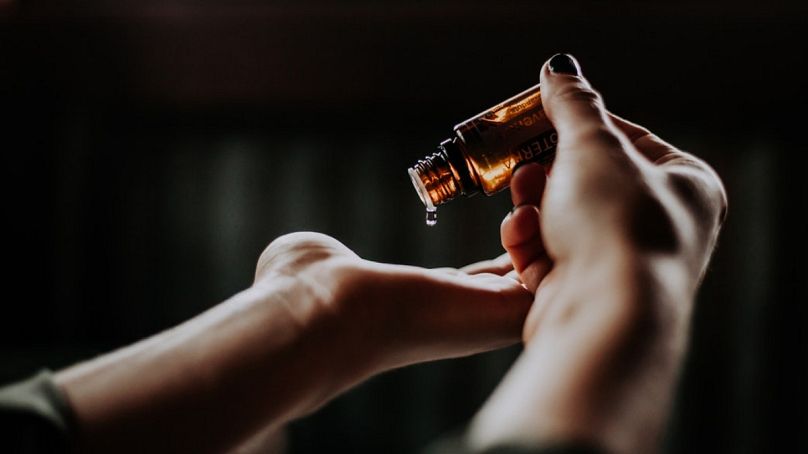How to get in on the trend that claims to balance mind, body and spirit.
The ancient healing system of Ayurveda is suddenly flourishing across Europe, as more people look to manage their health holistically instead of via modern medicine. We investigate why this is and reveal how to get in on the trend that claims to balance mind, body and spirit.
 ADVERTISEMENT
ADVERTISEMENT
 ADVERTISEMENT
ADVERTISEMENT
Ayurvedic medicine was developed around 3,000 years ago in India. It focuses on treating the root cause of health concerns through deep-cleansing processes, diet, lifestyle, natural medicines, breathing and yoga.
Deep-cleansing
“Ayurveda is a person-centred science, rather than disease-focused. It is both curative and preventative, but most importantly, it is personalised to the individual,” says Ayurvedic practitioner and author Geeta Vara.
Globally, the Ayurvedic medicine market is set to reach €8.7 million by 2022, increasing at a compound annual growth rate of 16% – according to a study from Analytical Research Cognizance.
While one of the most ancient forms of healing, it’s only recently taking off in Europe as a legitimate route to better health. And it’s not just a fad fuelled by the millennial-driven modern mysticism movement. Medical professionals are on board too. From April 2019, the UK’s National Health Service (NHS) will trial South Asian Ayurvedic herbal remedy Andrographis to cut down on antibiotics for coughs and colds. Charities are also starting to research the effects of Ayurvedic herbs on things like Cancer.
Combining ancient and modern wisdom
“In the last decade, the landscape of Ayurveda in Europe has changed completely. When I first moved to London less than ten years ago, all I got were confused looks when I mentioned I was studying Indian Medicine,” says specialist Faith Warner. “Now people say with a smile ‘Oh Ayurveda, that’s amazing, tell me more!’
“The number of clinics, therapy centres, courses and other Ayurvedic services being opening across Europe is increasing – and at an almost explosive rate,” continues Warner. “That’s not to say that Ayurveda is an alternative to mainstream though, you don’t have to choose it or what you are used to. The new generation of health and wellbeing is about combining ancient and modern wisdom for the best all-round effect.”
Doshas
Practitioners of Ayurveda believe each individual is made from five basic elements found universally – specifically space, air, fire, water and earth. When combined in a human body,
they can form three life forces or energies, called Doshas, and these are responsible for how your body works.
Everyone possesses a unique mix of the three Doshas: Vata Dosha (space and air), Pitta Dosha (fire and water) and Kapha Dosha (water and earth). However, one type usually dominates and your chances of becoming unwell are linked to your particular Dosha balance.
“We investigate an individual’s Dosha Prakruti (birth constitution) before suggesting modifications designed to follow your Dinacharya (routine in life) and Rutucharya (certain routines based on seasonal changes),” explains Raghav Baliga, a pharmacologist and Ayurvedic physician. “This includes advice on diet and lifestyle to counter illness, including treatment to prevent the accumulation of toxins. Wellbeing is not a simple pill to take.”
So how can you tap into the holistic form of healing, you might ask? We’ve rounded up three ways to experience it for yourself.
Attend the UK’s First Ayurvedic Festival
Those curious to discover more about Ayurveda can attend the inaugural AyurFest in the beautiful Somerset countryside, UK, from 31 May to 2 June 2019. The festival is set to host talks on subjects as diverse as “neuroinflammation, psychiatric disorders and Ayurveda” and “yoghurt at night? Beyond the rules of the Ayurvedic diet”.
There will also be practical workshops on home remedy preparations, alongside Ayurvedic cookery classes and yoga, organic vegetarian food and evening Kirtan (an ancient Sanskrit word meaning storytelling) around a bonfire.
Drink the Healing Powers of Adaptogens
Adaptogens are herbal supplements based on Ayurvedic medicine that some maintain can help you combat stress, calm anxiety and ramp up libido. Head to ultra-instagrammable Glow Bar https://glowbarldn.com in London for your fix. Open for less than a year, the wellness destination targets young women seeking ways to manage their stress levels.
Along with infrared sauna pods and a self-care boutique, its moon milk drinks are proving a hit. The elixirs are crammed with Ashwagandha – a root used in Ayurveda for centuries that relaxes and calms the mind, and Macqui Berry – an exotic, dark-purple fruit that fights fatigue and toxins in the body.
Learn How to Apply Ayurveda Daily
Ayurveda - Ancient Wisdom for Modern Wellbeing https://www.geetavara.co.uk/book/ is a guide focusing on the principles of Ayurveda that you can apply immediately – from rituals for daily cleansing and improved sleep, to ways of cleansing the body from toxins and boosting digestive function.
“Ayurveda is 100% practical when it comes to day-to-day implementation. We are merely taking ourselves 'home', back to the way nature intended us to live,” author and Ayurvedic practitioner Geeta Vara explains. “We become more aligned to our mind-body type, daily circadian rhythms and seasonal variations. Food is medicine, lifestyle is medicine and conscious eating practices are a crucial part of our healing when it comes to gut health.
Words: Kate Johnson












